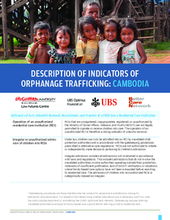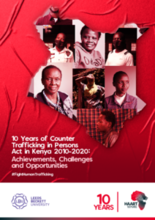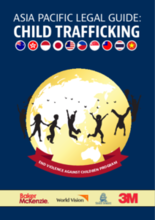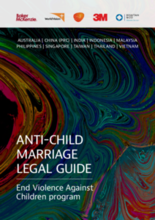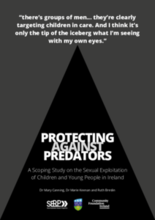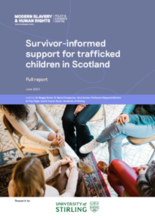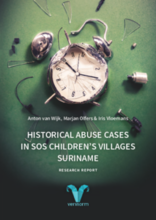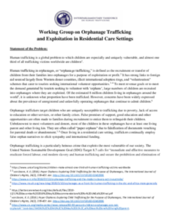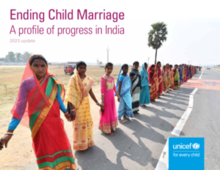Displaying 61 - 70 of 470
This is a list of indicators of acts: Unlawful Removal, Recruitment, and Transfer of a Child into a Residential Care Institution
This publication evaluates the progress of implementing the 2010 Counter Trafficking in Persons Act in Kenya from its inception until now (2010-2020).
This Child Trafficking Legal Guide produced by Baker McKenzie, World Vision, State Street and 3M aims to empower and educate users on how to best navigate regulatory hurdles that may arise when assisting children affected by human trafficking.
This Anti-Child Marriage Guide produced by World Vision aims to empower and educate users as how to best navigate regulatory hurdles that may arise when assisting children affected by child marriage. This fourth legal guide addresses frequently asked questions relating to protecting victims of child marriage in Australia, Mainland China, India, Indonesia, Malaysia, the Philippines, Singapore, Taiwan, Thailand, and Vietnam.
This scoping study explores forms of sexual exploitation of children and young people in Ireland, including those whose life experiences make them more vulnerable including being in care, going ‘missing’ or running away from home or a care placement.
The aim of this study was to fill a gap in knowledge in relation to what constitutes recovery and effective support over a longer time frame for separated children and young people who have experienced trafficking in Scotland. The study illuminates processes that have not been previously explored with this group of children and young people in Scotland.
This report comprises of research into cases of historical sexual abuse that took place in the SOS Children’s Village in Suriname. This research covers roughly the period from the early seventies to 2006. The research took place partly in the Netherlands and partly in Suriname.
This statement was released by the Working Group on Orphanage Trafficking and Exploitation -- a global coalition of Members of Parliament, government leaders, survivor leaders, and key stakeholders committed to combatting orphanage trafficking and the exploitation through raising awareness and identifying, creating, and implementing tools that curb the demand for orphanage trafficking and stop the exploitation of children in residential care settings, including orphanages. The Working group aims to raise awareness and combat orphanage trafficking at the policy level globally.
The practice of child marriage has continued to decline globally. Today, one in five young women aged 20 to 24 years were married as children versus nearly one in four 10 years ago.
India has made remarkable progress toward ending child marriage according to this new UNICEF report, though this country remains home to the largest number of child brides worldwide. Despite advancements on many fronts, the rate of decline is not sufficient to reach the target of eliminating the practice by 2030, as set out in the Sustainable Development Goals.

